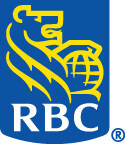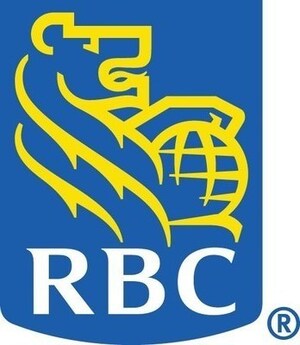High-net-worth individuals say it's more important to future-proof wealth than ever before, as they plan for an extended retirement
Longevity increasingly on the minds of affluent Americans and they're making investment decisions to reflect that, according to a new study from The Economist Intelligence Unit, commissioned by RBC Wealth Management
MINNEAPOLIS, MN, Sept. 12, 2019 /PRNewswire/ - Against a backdrop of global economic uncertainty, increased living costs and changing tax structures, the majority of high-net-worth individuals (HNWIs) in the U.S. (75%) agree that it is more important than ever to future-proof one's wealth. A group whose top definition of wealth is "security," HNWIs rank conserving their assets for their future well-being (55%) and allowing for an extended retirement (49%) above all other investment goals.
This is according to a new study from The Economist Intelligence Unit (The EIU), commissioned by RBC Wealth Management. The EIU polled 1,051 HNWIs across regions, genders and generations, including 317 respondents in the U.S., with at least $1 million in assets.
"With people living longer, and with housing and healthcare costs skyrocketing, Americans are rightly concerned about the possibility of outliving their assets. Even those with more financial flexibility share these concerns, which highlights the magnitude of the issue," said Ann Senne, Head of the RBC Wealth Management – U.S. Advice & Solutions group. "Planning ahead is critical, and working with an advisor to create a strategy that both helps them meet their goals and protects them in the future can help individuals gain clarity and confidence."
Creating Wealth: The Challenges and Opportunities
About half of HNWIs (51%) agree that wealth is less easily attained or preserved today than it was a generation ago. While they have been able to achieve high-net-worth status, survey respondents shared some of the obstacles they faced along the way, including the rising cost of living (33%), not coming from a wealthy family (22%), and funding my own healthcare expenses (14%).
Despite the challenges, respondents pointed to the factors they think provide more opportunities for people to generate wealth today than in the past: better education (46%), greater access to financial planning resources (42%), access to the Internet and new technologies (42%), and readily available market and economic information (33%). Just 8% of U.S. HNWIs say that opportunities to generate wealth have not increased.
"It's encouraging to see the respondents acknowledge all of the information available today that can help them attain their financial goals and build their wealth," said Angie O'Leary, Head of Wealth Planning at RBC Wealth Management – U.S. "Fewer high-net-worth individuals are looking at inheritance as a driver of wealth, meaning it's incumbent upon them to use the resources at their disposal – from the online tools to financial professionals – to formulate a long-term plan for managing their assets."
Investing for Wealth Preservation
While tax changes top the list of external factors worrying HNW Americans with regard to their wealth (48%), many are also concerned about issues that hold implications for the financial markets, such as global (38%) and domestic (35%) economic uncertainty, geopolitical issues (34%), and cross-border trade/tariff issues (26%).
More than a third of respondents (37%) expect to shift to less risky investments over the next five years, while just 6% think they'll shift to more high-risk investments and 28% say their investment strategy won't change over that period. Most (70%) agree that today's market requires investors to be far more flexible and responsive in their investment strategies than they used to be.
Looking ahead, the sectors they view as having the greatest investment potential over the next five years are technology (42%), healthcare (30%), and pharmaceuticals/biotech (26%).
"Despite their concerns and obstacles, the vast majority of the people we polled – 87% – are confident they will reach their goals for creating, preserving and managing their wealth. While there will always be external factors beyond our control, thoughtful, goals-based planning is how we help clients safeguard and grow their assets for the future," O'Leary added.
For more information about the survey, and to view the global results, visit https://www.rbcwealthmanagement.com/us/en/global-wealth.
About RBC Wealth Management – U.S.
In the United States, RBC Wealth Management operates as a division of RBC Capital Markets, LLC. Founded in 1909, RBC Capital Markets, LLC. is a member of the New York Stock Exchange, the Financial Industry Regulatory Authority, the Securities Investor Protection Corporation, and other major securities exchanges. RBC Wealth Management has $384 billion in total client assets with more than 1,900 financial advisors operating in 170 locations in 42 states.
RBC Wealth Management, a division of RBC Capital Markets, LLC, Member NYSE/FINRA/SIPC.
About the Study
The Economist Intelligence Unit (EIU) undertook a global study, commissioned by RBC Wealth Management, of 1,051 high-net-worth individuals (HNWIs; those with at least US$1MM in investable assets), 522 adult children of HNWIs and 521 respondents who are not yet HNWIs but who have a minimum income of US$100,000. The study took place from May to June, 2019 and included 629 respondents in the U.S. The margin of error on the U.S. sample is 3.9% with a 95% confidence level. The survey explored the shifting landscape of global wealth looking at looking at where wealth will be, what it will be invested in, how it will be invested and who is investing.
SOURCE RBC Wealth Management - U.S.

WANT YOUR COMPANY'S NEWS FEATURED ON PRNEWSWIRE.COM?
Newsrooms &
Influencers
Digital Media
Outlets
Journalists
Opted In




Share this article